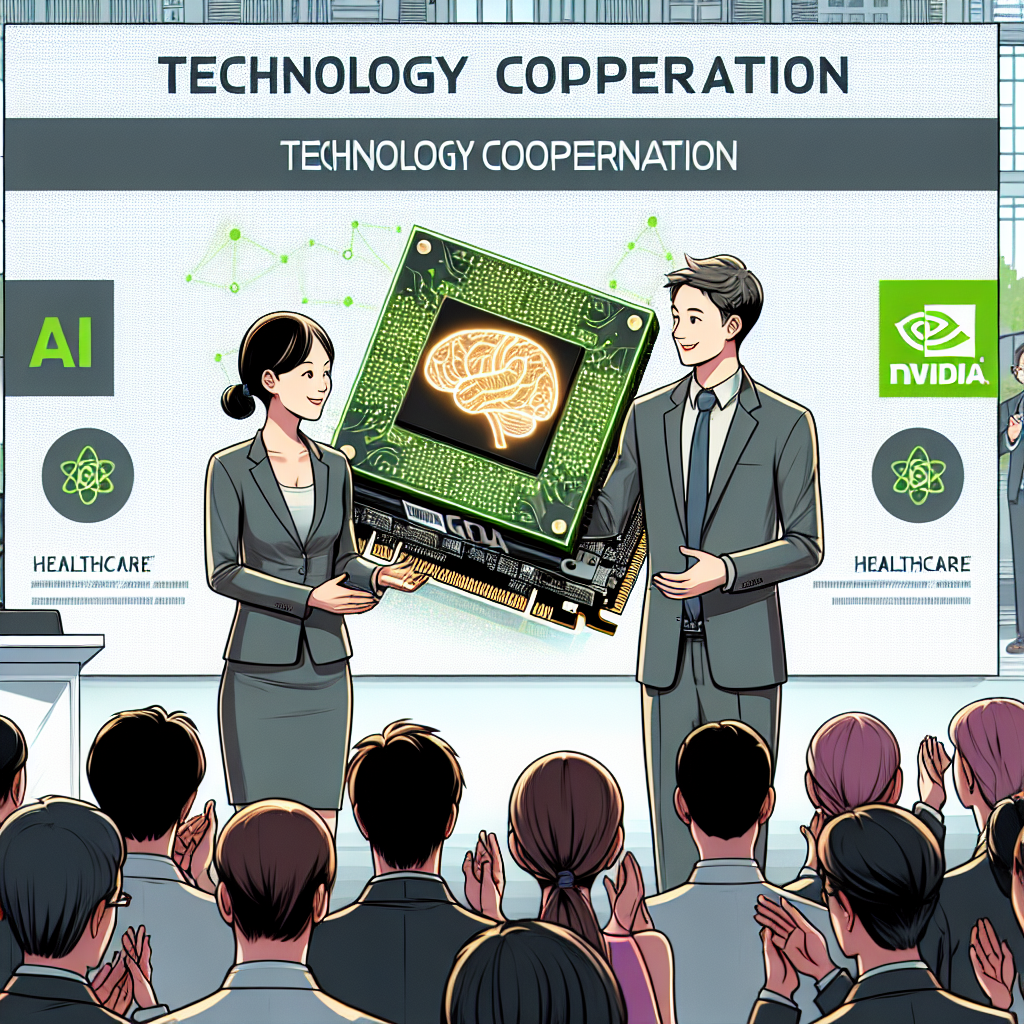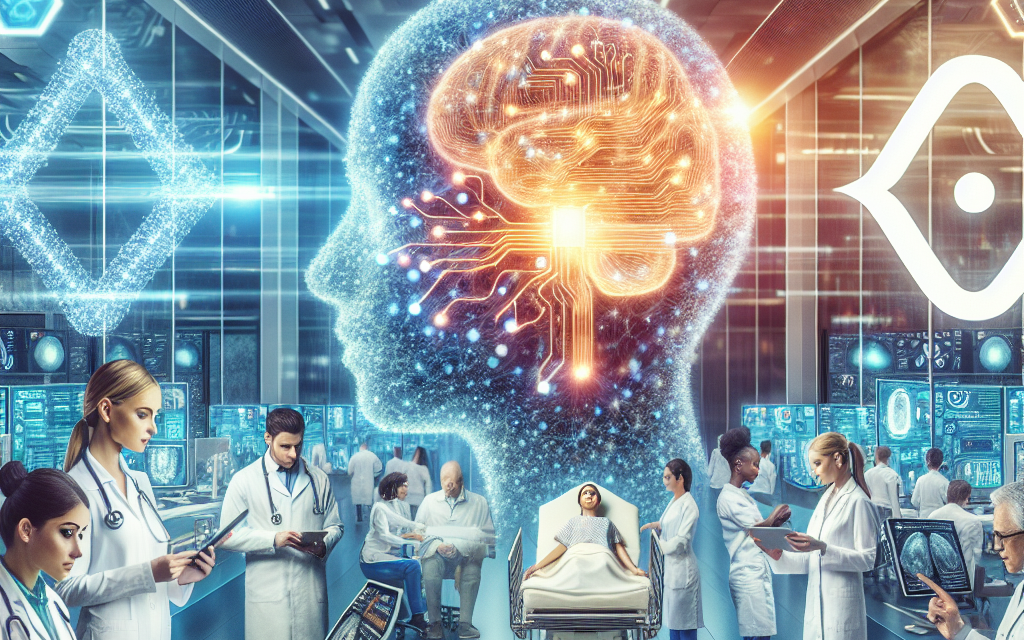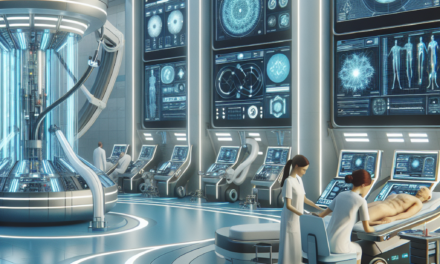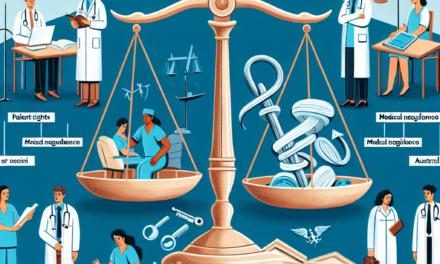Aidoc and NVIDIA Launch Initiative to Accelerate AI Integration in Healthcare

The integration of artificial intelligence (AI) in healthcare has been a transformative force, promising to revolutionize diagnostics, treatment planning, and patient care. In a groundbreaking move, Aidoc, a leading provider of AI solutions for medical imaging, has partnered with NVIDIA, a pioneer in AI computing, to accelerate the integration of AI technologies in healthcare. This initiative aims to enhance the capabilities of healthcare professionals, improve patient outcomes, and streamline operations across the medical field. This article delves into the details of this initiative, exploring its potential impact on the healthcare industry.
The Partnership: Aidoc and NVIDIA’s Vision for AI in Healthcare
Aidoc and NVIDIA’s collaboration is rooted in a shared vision of leveraging AI to address some of the most pressing challenges in healthcare. By combining Aidoc’s expertise in AI-driven medical imaging with NVIDIA’s cutting-edge computing technology, the partnership aims to create a robust ecosystem that supports the rapid deployment and integration of AI solutions in healthcare settings.
Aidoc has been at the forefront of AI innovation in medical imaging, developing algorithms that assist radiologists in identifying critical conditions such as brain hemorrhages, pulmonary embolisms, and spinal fractures. These AI tools have been instrumental in reducing diagnostic errors and improving the speed and accuracy of medical assessments.
NVIDIA, on the other hand, has been a leader in AI computing, providing the hardware and software infrastructure necessary for developing and deploying AI applications. Their GPUs (Graphics Processing Units) are widely used in AI research and development, offering the computational power required to process large datasets and train complex AI models.
The partnership between Aidoc and NVIDIA is a strategic alignment of their respective strengths, aiming to create a seamless integration of AI technologies in healthcare. This collaboration is expected to drive innovation, enhance the capabilities of healthcare professionals, and ultimately improve patient care.
Objectives of the Initiative
The primary objective of the Aidoc and NVIDIA initiative is to accelerate the adoption of AI technologies in healthcare by providing healthcare institutions with the tools and resources needed to integrate AI into their operations. This includes:
- Developing AI-powered solutions that enhance diagnostic accuracy and efficiency.
- Providing healthcare professionals with training and support to effectively use AI tools.
- Facilitating the integration of AI technologies into existing healthcare systems and workflows.
- Promoting research and development of new AI applications in healthcare.
- Ensuring the ethical and responsible use of AI in healthcare settings.
By achieving these objectives, the initiative aims to create a sustainable and scalable model for AI integration in healthcare, benefiting both healthcare providers and patients.
Transforming Diagnostics: AI’s Role in Medical Imaging
One of the most significant areas where AI is making an impact in healthcare is medical imaging. Radiology departments are often overwhelmed with the volume of imaging studies they need to interpret, leading to delays in diagnosis and treatment. AI has the potential to alleviate this burden by automating the analysis of medical images and assisting radiologists in identifying abnormalities.
Aidoc’s AI algorithms are designed to analyze medical images in real-time, flagging potential issues for further review by radiologists. This not only speeds up the diagnostic process but also reduces the likelihood of human error. For example, Aidoc’s AI tools have been shown to reduce the time it takes to diagnose a brain hemorrhage by up to 60%, allowing for faster intervention and improved patient outcomes.
Moreover, AI can assist in the detection of subtle changes in medical images that may be missed by the human eye. This is particularly important in the early detection of diseases such as cancer, where early intervention can significantly improve survival rates. By providing radiologists with AI-powered tools, the initiative aims to enhance the accuracy and efficiency of medical imaging, ultimately improving patient care.
Case Study: AI in Action
A recent case study conducted at a major hospital demonstrated the impact of AI on medical imaging. The hospital implemented Aidoc’s AI solutions in their radiology department, focusing on the detection of pulmonary embolisms. Over a six-month period, the hospital reported a 30% reduction in diagnostic errors and a 40% decrease in the time taken to diagnose and treat patients with pulmonary embolisms.
The success of this implementation highlights the potential of AI to transform diagnostics in healthcare. By reducing the workload of radiologists and improving the accuracy of diagnoses, AI can play a crucial role in enhancing patient care and outcomes.
Enhancing Treatment Planning: AI’s Impact on Personalized Medicine
AI is not only transforming diagnostics but also revolutionizing treatment planning in healthcare. Personalized medicine, which tailors treatment plans to individual patients based on their unique genetic makeup and medical history, is becoming increasingly feasible with the help of AI technologies.
AI algorithms can analyze vast amounts of data, including genetic information, medical records, and clinical trial results, to identify patterns and correlations that may not be apparent to human researchers. This enables healthcare providers to develop personalized treatment plans that are more effective and have fewer side effects.
For example, AI can help oncologists determine the most effective chemotherapy regimen for a cancer patient based on their genetic profile and the characteristics of their tumor. This not only improves the chances of successful treatment but also reduces the risk of adverse reactions.
AI-Driven Drug Discovery
In addition to personalized medicine, AI is also playing a crucial role in drug discovery and development. The traditional drug discovery process is time-consuming and expensive, often taking years and billions of dollars to bring a new drug to market. AI has the potential to streamline this process by identifying promising drug candidates more quickly and accurately.
AI algorithms can analyze large datasets of chemical compounds and biological targets to identify potential drug candidates. This not only speeds up the discovery process but also reduces the cost of drug development. Several pharmaceutical companies are already using AI to accelerate drug discovery, with promising results.
For instance, a recent study found that AI was able to identify a new antibiotic compound in just a few days, a process that would have taken years using traditional methods. This highlights the potential of AI to revolutionize drug discovery and bring new treatments to market more quickly.
Streamlining Operations: AI’s Role in Healthcare Administration
Beyond diagnostics and treatment planning, AI is also transforming healthcare administration by streamlining operations and improving efficiency. Healthcare institutions are often burdened with administrative tasks, such as scheduling appointments, managing patient records, and processing insurance claims. AI can automate many of these tasks, freeing up healthcare professionals to focus on patient care.
For example, AI-powered chatbots can handle routine inquiries from patients, such as scheduling appointments or providing information about services. This not only improves the patient experience but also reduces the workload of administrative staff.
AI can also assist in managing patient records by automatically updating and organizing information. This ensures that healthcare providers have access to accurate and up-to-date information, improving the quality of care.
Case Study: AI in Healthcare Administration
A large healthcare system implemented an AI-powered scheduling system to manage appointments across multiple facilities. The system was able to optimize appointment scheduling, reducing wait times for patients and improving the utilization of healthcare resources. As a result, the healthcare system reported a 20% increase in patient satisfaction and a 15% reduction in administrative costs.
This case study demonstrates the potential of AI to streamline healthcare administration and improve efficiency. By automating routine tasks and optimizing operations, AI can help healthcare institutions provide better care to patients while reducing costs.
Ethical Considerations: Ensuring Responsible AI Use in Healthcare
While the potential benefits of AI in healthcare are significant, it is essential to address the ethical considerations associated with its use. Ensuring the responsible and ethical use of AI in healthcare is a critical component of the Aidoc and NVIDIA initiative.
One of the primary ethical concerns is the potential for bias in AI algorithms. AI models are trained on large datasets, and if these datasets are not representative of the diverse patient populations they serve, the algorithms may produce biased results. This can lead to disparities in care and outcomes for different patient groups.
To address this issue, it is essential to ensure that AI algorithms are trained on diverse and representative datasets. Additionally, ongoing monitoring and evaluation of AI systems are necessary to identify and mitigate any biases that may arise.
Data Privacy and Security
Another critical ethical consideration is data privacy and security. AI systems rely on large amounts of data, including sensitive patient information, to function effectively. Ensuring the privacy and security of this data is paramount to maintaining patient trust and compliance with regulations such as the Health Insurance Portability and Accountability Act (HIPAA).
Healthcare institutions must implement robust data protection measures, including encryption and access controls, to safeguard patient information. Additionally, transparency in how data is used and shared is essential to maintaining patient trust.
By addressing these ethical considerations, the Aidoc and NVIDIA initiative aims to ensure the responsible and ethical use of AI in healthcare, ultimately benefiting patients and healthcare providers alike.
Conclusion: The Future of AI in Healthcare
The partnership between Aidoc and NVIDIA represents a significant step forward in the integration of AI technologies in healthcare. By combining their expertise and resources, the two companies aim to accelerate the adoption of AI solutions, transforming diagnostics, treatment planning, and healthcare administration.
The potential benefits of AI in healthcare are immense, from improving diagnostic accuracy and efficiency to enabling personalized medicine and streamlining operations. However, it is essential to address the ethical considerations associated with AI use, ensuring that these technologies are used responsibly and equitably.
As the Aidoc and NVIDIA initiative progresses, it is likely to serve as a model for other collaborations in the healthcare industry, driving innovation and improving patient care. The future of AI in healthcare is bright, and this partnership is poised to play a pivotal role in shaping that future.





